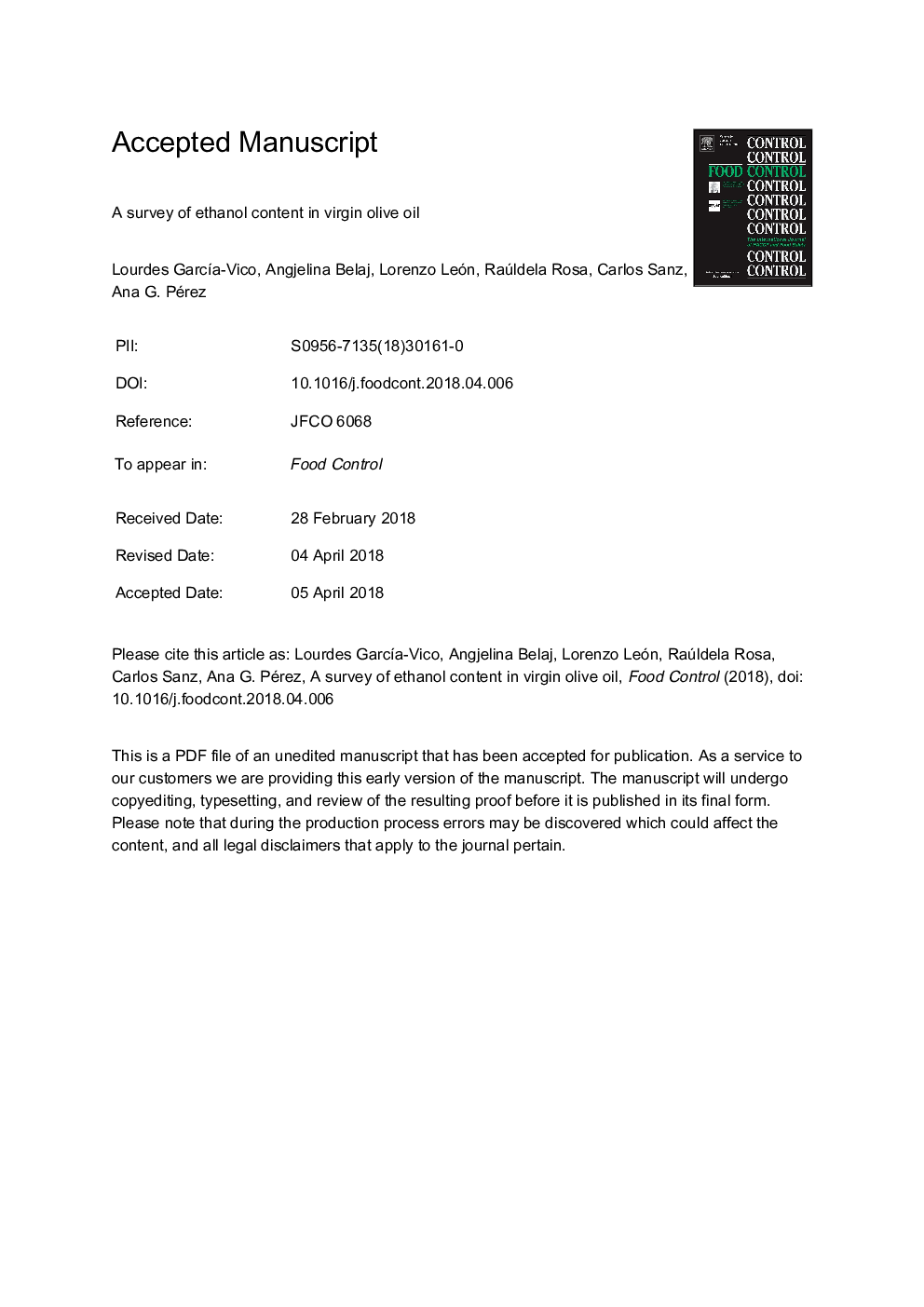| Article ID | Journal | Published Year | Pages | File Type |
|---|---|---|---|---|
| 8887904 | Food Control | 2018 | 18 Pages |
Abstract
Ethanol is a substrate for the chemical synthesis of fatty acid ethyl esters (FAEE) during storage of virgin olive oil whose contents are officially regulated. Given the impact that the ethanol content might have on the olive oil commercialization, the level of this metabolite has been studied in an array of olive genotypes representing the diversity available in olive (Olea europaea L.). Substantial levels of ethanol have been found in the oils of all genotypes under study. Moreover, increasing levels of alcohol dehydrogenase activity have been found during olive fruit ripening in good correspondence with the accumulation of ethanol in advanced stages of fruit maturation. The results suggest that ethanol has a ubiquitous character in the fruits of Olea europaea and, therefore, in all the oils obtained from them. Besides, their concentration seems to depend on the cultivar, ripening stage and climatology, not discarding the influence of the growing conditions. Data suggest that the application of olive oil regulation for FAEE levels should consider the presence of basal levels of ethanol in the oils, which are quite high in many cultivars.
Related Topics
Life Sciences
Agricultural and Biological Sciences
Food Science
Authors
Lourdes GarcÃa-Vico, Angjelina Belaj, Lorenzo León, Raúl de la Rosa, Carlos Sanz, Ana G. Pérez,
